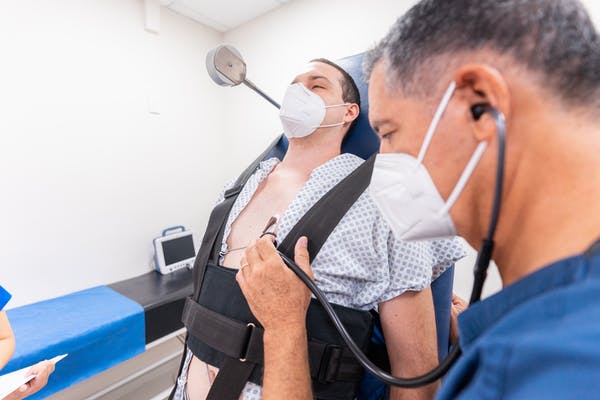HEALTH
6 Essential Facts Your Cardiologist Should Let You Know

No one can try to underestimate or overestimate the benefits of having a healthy heart. Cardiologists are always available to ensure the diagnosing and treatment process solves all your heart issues. However, have you ever asked yourself what a doctor would tell you before visiting a healthcare office? There are several things that cardiologist Bakersfield, CA, would let you know. Let’s explore six essential facts your cardiologist should let you know.
- Do Not Believe All Information You Get Online
In most cases, home medications and vitamin cures do not work extensively and may hurt you. Numerous patients are trying remedies using homemade vitamins and therapies. However, you should avoid these remedies as they are not evidence-based. Some vitamins also adversely interact with the health treatments, making the medication ineffective.
- The More Data You Provide the Cardiologist, The Faster They Can Begin Helping You
You should ensure you have gathered the necessary information during your first appointment. Listing down medical history comprising the dates and location of the earlier cardiac process would be integral. This information would, in turn, help the cardiologist to determine the best way to help you.
- Become Truthful Concerning Your Bad Habits
Sometimes it can be enticing to be less honest about your consumption of alcohol or taking cheeseburgers for lunch. However, being true to yourself will only hurt your care. The various techniques a cardiologist applies will be subject to your lifestyle habits. Imagine you visit a cardiologist with a blurred picture; this will indicate that you may receive incorrect treatment.
- Reach Out To Your Cardiologist Before Stopping Drugs
In most cases, most patients are inconsistent with taking their medication which puts them at a greater risk of extending the recovery period and marking the beginning of a new problem. If you have difficulties taking medications as suggested, let the cardiologist know.
- Look For a Practitioner You Link With
At all costs, you should ensure you are comfortable with your cardiologist. You should seek recommendations from your family, colleagues, and friends to get the best solution. When appointed, reason how the cardiologist gives feedback to your questions. If you do not like how they answer, you should not be discouraged from speaking up.
- Avoid Consuming Energy Drinks
You may be afraid of avoiding energy drinks such as caffeine as they bring liveliness. However, these products usually can lead to palpitations, among other health problems. Instead of utilizing these energy drinks to gain extra energy, it would be best to try to get more sleep.
Get a Cardiologist Near You
Your heart means a lot to you, and thus you should concentrate on its well-being. Regularly visiting a cardiologist is integral as they will conduct the functioning of your heart and know if it has a problem. Any problem that may be detected early will be treated before causing further damage. If you are looking for an institution where you can get these comprehensive and extensive services, contact Heart Vascular and Leg Center, a Vascular Specialist & Cardiologist in Bakersfield, CA. The center comprises a team of vascular specialists and cardiologists offering passionate treatment using modernized technology conveniently in an office-based environment.
Umar Nisar was born and raised in the busy city of Abbottabad. As a journalist, Umar Nisar has contributed to many online publications including PAK Today and the Huffing Post. In regards to academics, Umar Nisar earned a degree in business from the Abbottabad UST, Havelian. Umar Nisar follows the money and covers all aspects of emerging tech here at The Hear Up.
Thanks










